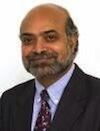Agriculture and Structural Transformation in Africa
This paper was prepared for Stanford University’s Global Food Policy and Food Security Symposium Series, hosted by the Center on Food Security and the Environment, and supported by the Bill and Melinda Gates Foundation. The talk was delivered April 7, 2011.
Structural change during most of the first 5 decades of post-independence Africa has been productivity-reducing. It has been driven by negative diversification reflected in labor migrating from the underperforming, yet higher-productivity agricultural sector into an oversized, lower-productivity service sector. In the aftermath of the failure of the first generation of import-substituting, inward-oriented industrialization efforts of the 1960s, African governments had all but given up on the search for practical industrial policies. Meanwhile, agriculture continued to be confronted with significant policy and institutional challenges, moving from an environment marked with heavy direct and implicit taxation into an era of the controversial structural adjustment policies that significantly curtailed services support to the sector. The combined effect resulted in stagnation in the manufacturing sector and forced specialization in the primary sector. The latter continued to be dominated by a struggling agricultural sector, which could not create enough employment to absorb an increasing labor force from a rapidly growing population. In addition, people started to migrate from villages to rural towns and urban centers and in the process swelled up the ranks of the under-employed in a fast-growing informal sector.
The economic recovery of the last 15 years provides strong hope that African countries are starting to turn the page. The focus now should be on sustaining and accelerating the recovery process, enacting policies to raise productivity in the agricultural and service sectors, and revitalize the modern industrial sector. A good start is the continent-wide effort under the Comprehensive Africa Agriculture Development Programme (CAADP) to encourage evidence-based policy planning and implementation and to increase investment in agriculture. However, it needs to be complemented with innovative industrialization policies to develop comparative advantage in higher-valued manufacturing goods. Future development strategies should seek to raise productivity in the service sector, which now has a large and growing share of low-productivity labor. The objective of these strategies should be to modernize production processes and to promote innovation in the production of domestic and household goods ranging from metalwork to wood and leather processing to a host of handicraft products.


